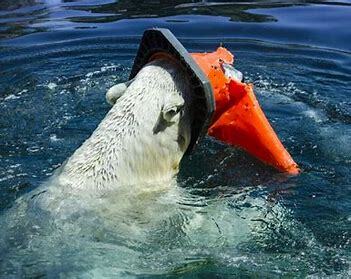Oceans water column is heating faster than predicted, screwing any efforts to slash CO2 and methane.
The oceans are really what tells you how fast the Earth is warming. Using the oceans, we see a continued, uninterrupted, and accelerating warming rate of planet Earth. This is dire news.” Professor John Abraham, University of St Thomas, MN
There are many complicating factors in our efforts to combat the biggest threat to humanity’s existence, besides the mind-boggling enormity and heartbreak of the physics itself.
Apathy, fossil fuel propaganda, and their enablers in the congress and the soul-crushing loony factor have limited our ability to act.
Mark Zuckerberg and Sheryl Sandberg of Facebook have upped the fight against the war on climate action. Some of the “fact-checkers” on climate science that are posted on Facebook are staffers from the Daily Caller.
Now, Facebook has allowed these ‘fact-checkers’ to overrule climate scientists by a big ole loophole deeming their work as ‘opinion”. And though I share the science that scientists have discovered in my climate diaries, I can testify many are removed from Facebook for no apparent reason. To paraphrase Bill Maher, I can’t prove it, but I just know it is true. I fully expect this diary will suffer the same fate.
We are fast approaching the point of no return for this planetary climate emergency, which has had code red alerts flashing for decades now all to no avail. The public needs to know how grim the situation is so the fight against extinction can aggressively proceed if and when Donald Trump leaves office in January.
It will be the oceans that will finally do us in.
Jeff Goodell writes another excellent climate crisis piece in Rolling Stone Magazine on the ‘troubled waters’ of the oceans.
Earth was not born with an ocean. Water arrived here from the cold depths of space with icy asteroids and comets, which bombarded the planet during the first few million years of its existence. It’s been a watery world ever since. Today, 97 percent of the Earth’s water is in the ocean, which covers more than 70 percent of the planet. The ocean was the petri dish for the creation of life, and we carry that early history within us. The salt content of our blood plasma is similar to the salt content of seawater. “The bones we use to hear with were once gill bones of sharks,” says Neil Shubin, professor of anatomy at the University of Chicago and author of Your Inner Fish: A Journey Into the 3.5 Billion-Year History of the Human Body. “Our hands are modified fish fins, and the genes that build our basic body architecture are shared with worms and fish.”
Despite our intimate connection to the sea, for most of human history, the ocean has been as strange to us as a distant planet, a realm of monsters and mayhem. Humans stuck close to the shore, mostly, and our ignorance about the ocean was profound. It still is. Scientists have only a vague understanding of exactly how ocean currents are driven, or how ocean temperatures impact cloud formation, or what creatures thrive in the depths. Far more people have been to the moon, which is 240,000 miles above us than have been to the deepest part of the ocean, which is seven miles down. Eighty percent of the ocean remains unmapped, unobserved, unexplored. Marine biologists don’t know how sharks sleep or an octopus learns to open a jar.
It was a "staggering" discovery for #scientists. https://t.co/nsf2mzNiu4
— EcoWatch (@EcoWatch) June 9, 2020
But scientists know enough to know that the ocean is in trouble. Largely because of overfishing, 90 percent of the large fish that were here in the 1950s are now gone. One metric ton of plastic enters the ocean every four seconds (at this rate, there will be more plastic than fish in the ocean by 2050). But the biggest problem, thanks largely to our insatiable appetite for fossil fuels, is that the ocean is heating up fast. The past five years have been the five warmest ever measured in the ocean, with 2019 the hottest ever. According to one study, the amount of heat being added to the ocean is equivalent to every person on the planet running 100 microwave ovens all day and night.
Until now, the ocean has been the hero of the climate crisis — about 90 percent of the additional heat we’ve trapped from burning fossil fuels has been absorbed by it. “Without the ocean, the atmosphere would be a lot hotter than it already is,” says Ken Caldeira, a climate scientist at the Carnegie Institution for Science in Palo Alto. But the heat the ocean absorbed has not magically vanished — it’s just stored in the depths and radiated out later. By absorbing and slowly releasing heat, the ocean reduces the volatility of our climate, cushioning the highs and lows as temperatures change from day to night, winter to summer. It also means the heat will continue to seep out for centuries to come, slowing any human efforts to cool the planet.
Phys.org shares an analogy on how the oceans and atmosphere move heat across the planet.
Imagine a massive mug of cold, dense cream with hot coffee poured on top. Now place it on a rotating table. Over time, the fluids will slowly mix into each other, and heat from the coffee will eventually reach the bottom of the mug. But as most of us, impatient coffee drinkers know, stirring the layers together is a more efficient way to distribute the heat and enjoy a beverage that’s not scalding hot or ice cold. The key is the swirls or vortices, that formed in the turbulent liquid.
“If you just waited to see whether molecular diffusion did it, it would take forever and you’ll never get your coffee and milk together,” says Raffaele Ferrari, Cecil, and Ida Green Professor of Oceanography in MIT’s Department of Earth, Atmospheric and Planetary Sciences (EAPS).
Melting ice caps, warmer waters push sea levels to record high, with #oceans approaching crisis point as warming hits 1.1C in 2019
>Underwater heatwaves hit 80% of world’s oceans at least once
>Ocean heat levels broke records set only 1 year agohttps://t.co/6AEFAXrMnT #climate pic.twitter.com/uEW2eMdpvG— Assaad Razzouk (@AssaadRazzouk) March 11, 2020
It may seem intuitive that Earth’s sun-baked equator is hot while the relatively sun-deprived poles are cold, with a gradient of temperatures in between. However, the actual span of that temperature gradient is relatively small compared to what it might otherwise be because of the way the Earth system physically transports heat around the globe to cooler regions, moderating the extremes.
Otherwise, “you would have unbearably hot temperatures at the equator and [the temperate latitudes] would be frozen,” says Ferrari. “So, the fact that the planet is habitable, as we know it, has to do with heat transport from the equator to the poles.”
The world's oceans have absorbed almost all the extra heat we generate by pumping greenhouse gases into the atmosphere.
This animation shows in 27 seconds how hot they're getting.
Data via @Lijing_Cheng @MichaelEMann and others. https://t.co/KZmTSoQYqk
— Ajit Niranjan (@NiranjanAjit) February 13, 2020
Eric Roston of Bloomberg writes on how an Ocean Discovery Complicates Plans to Slash Climate Pollution
…“Their model suggests that the changes in the ocean carbon can be explained by two things: the amount of CO₂ in the atmosphere and temperature.”
Climate science is dominated by extremely complicated, often government-built models that take weeks or months to run and analyze how key features of the Earth system affect each other. But McKinley’s work is striking for the relative simplicity of its findings.
“It all served as a reminder that the coronavirus pandemic, which has killed 325,000 people so far, is colliding with another global menace: a fast-heating planet that acutely threatens millions of people, especially the world’s poor.”https://t.co/YWl0QH99E6
— The Grey Man (@IntelOperator) May 24, 2020
That simplicity has a cost in terms of the model’s predictive ability, as it doesn’t factor in simulations of natural processes that might help scientists project how the ocean carbon sink could respond to climate change, Mikaloff-Fletcher said.
Still, with further research, the findings could influence how nations understand their goal to limit global warming. The ocean is so responsive to pollution that it’s likely waters absorbed less CO₂ this spring than they did before Covid-19 caused nations implemented quarantines.
“If we cut our emissions for controlling climate change, that ocean sink is very rapidly going to slow down,” McKinley said. “And that change will happen quickly.”
The result, according to Matthias Hofmann, a senior scientist at the Potsdam Institute for Climate Impact Research, means that humanity will need to step-up its plan
Climate velocity reveals increasing exposure of deep-ocean biodiversity to future warming
25 May 2020https://t.co/YTAjTx52rZ
— fj (@gecko39) May 25, 2020
New in Nature: "The warming of the oceans due to climate change may be helping to drive an “unprecedented” spike in the number of whales found entangled in fishing gear"
Warmer waters drive whales to feed closer to the coast, near crab fishing traps.https://t.co/fvFbDPPyUL pic.twitter.com/yR1lkDG0GB
— David Windt (@DavidLWindt) January 27, 2020
Marine species are outpacing terrestrial species in the race against global warminghttps://t.co/yRjFhBgO3L #ClimateChange
Species better track climate warming in the oceans than on land. pic.twitter.com/IQTPvL10Kh
— Lukas VF Novak (@animalculum) May 25, 2020
Climate change could kill all of Earth's coral reefs by 2100, scientists warn
About 70-90% of all existing coral reefs are expected to disappear in the next 20 years due to warming oceans, acidic water and pollution 😢#OneVoice1#BeTheChange4Earthhttps://t.co/kst9MkIDlu
— Lady Lizmo Blue 🔄 🐝 Late Boomer (@lizmoblubuckeye) February 21, 2020
Acidification in the Arctic Ocean is anticipated to be worse than previously expected due to a greater uptake of carbon dioxide (CO2), new research suggests. This increase in CO2 causes the frigid northern waters to become more acidic, which can ultimately lead to the decay of hard-shelled marine animals like mussels and “sea butterflies”.
Seawater absorbs atmospheric CO2 as part of the natural climate cycle and sparks a series of chemical reactions that reduce the pH of seawater and carbonate ion concentrations, according to the NOAA Carbon Program. Mollusks, corals, and crustaceans pull these carbonate ions from the seawater in order to create their hard shells, but decreasing levels mean their shells will become weaker over time and, as they play a pivotal role at the base of the marine food chain, can have dire consequences for species of all predation levels.
(CNN) Beaches on the French Côte d’Azur like Cannes or St. Tropez are among the most coveted vacation spots worldwide, but now the coronavirus pandemic has left an abundance of pollutants in the water: discarded masks and gloves.“How would you like swimming with COVID-19 this summer?” Laurent Lombard, a diver and founder of the nonprofit Opération Mer Propre (Operation Clean Sea) asked in a Facebook post last month.His organization has been sounding the alarm about finding discarded PPE and hand sanitizer bottles in their sea cleanup operations, and shared pictures of their findings with CNN.Lombard warned on Facebook that “soon there may be more masks than jellyfish” in the Mediterranean sea.

George Tsakraklides writes in his blog on how humans are the lionfish and how we will end up killing ourselves as a result.
David Attenborough recently remarked that “Humans have overrun the planet”. I would go a step further to say that humans have become an invasive species to the entire planet, hostile to all ecosystems. The population explosion that followed the industrial revolution was a direct result of our ability to maximize our competitive advantage in exploiting our resources and continuing to defeat our biggest predators: deadly infectious diseases that used to decimate millions of humans.
But nature always has the last word. And it even has solutions for persistent, invasive species, thanks to the paradox of overpopulation: the more a species multiplies and occupies new niches, the more it comes in contact with other organisms it never encountered before, organisms that maybe its new predators. The larger the pest population, the greatest this risk becomes, as eventually, the pest comes in contact with the entirety of the vast genetic library of the planet, which is not to be underestimated. Somewhere inside that library, there is a key. There is the solution nature has been looking for. There is a weapon against this pest.
COVID-19 is a textbook demonstration of this exact principle. Nature is trying to cull humans before they destroy too many other species. Unless we realize that we are the lionfish, the camel, the Japanese honeysuckle, our end will be even more spectacular. Because just like any other parasite, we are nothing without our host. Once we kill it, we die with it.







